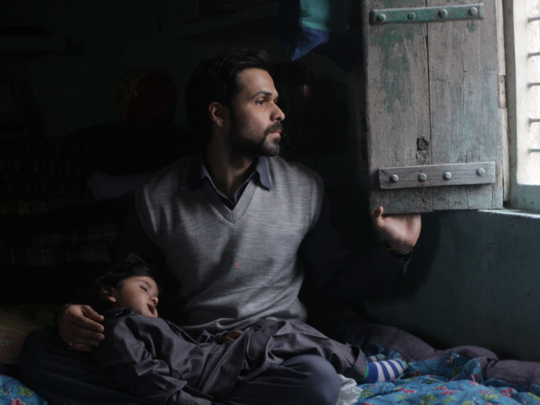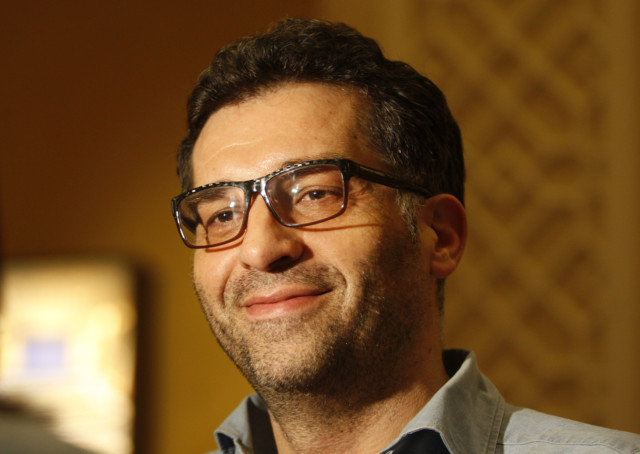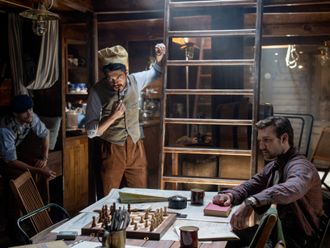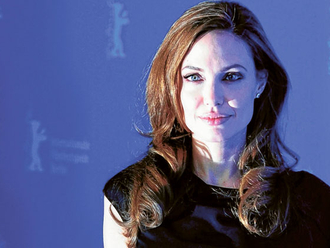
The World Health Organisation (WHO) estimates that 1.5 million babies die each year because they are not breastfed. Filmmaker Danis Tanovic, who seems confident numbers must be even higher, spent eight years trying to make a movie about it.
Tigers, Tanovic’s entry into Dubai International Film Festival this year, is based on the true story of Ayan (Emraan Hashmi), a Nestle salesman who went against his employers in Pakistan upon discovering the horrifying reality of what the formula he’d been bribing doctors to buy was doing to poorer families. As doctors were needlessly prescribing the brand name powder to those who could barely afford it, mothers were diluting it in unclean water and causing their babies to contract fatal cases of diarrhoea and dehydration.
Tanovic, a father of five, said the story of Ayan — originally Syed Aamir Raza, with his name changed for the sake of the film — intrigued him.
“This guy tried to fight the system, maybe even knowing he will not succeed — and there’s something courageous about him. At one point, he thought of blackmailing Nestle and decided not to. He’s a human being, and a modern hero to me, attacking the system even if he knows that probably he will not win,” said Tanovic.
Indeed, Ayan, a husband and father, did not win in the film — and neither did Raza in reality. On the brink of blowing the whistle on Nestle, Ayan was confronted with a voice recording of himself agreeing to take hush money in a moment of desperation.
Tanovic, who grappled with the story and its reliability upon learning of Raza’s short-lived plan to blackmail Nestle, also sympathised with him. As a fellow family man, Tanovic asked himself what he would have done if he was in a situation wherein he was being threatened by a powerful organisation while trying to protect — and provide for — his kids.
Far from having a heroic ending, Ayan, unable to return to Pakistan safely, was separated from his family for 7 years, moving to Toronto, Canada, to make a living. He is now reunited with them and drives a taxi.
In the film, he narrated his story to a lawyer who attempted to assess the risk of creating a film about him. The making of Tigers followed a much similar path.
Tanovic began with the project in 2006, but upon losing support from BBC due to the possibility of legal consequences, it fell apart.
“So you’re thinking, ‘Why do we have these public services at all?’ People are paying money for them to make these kinds of stories — if they pull out, what kind of world are they living in?” said Tanovic.
In ways, casting Indian actor Emraan Hashmi in the role of Ayan was the film’s saviour. He was a perfect fit for the character, evoking sympathy with his gentle demeanour, kind smile and ability to convey conflicting emotions with ease. But it was his status as a Bollywood star that truly lent itself to the film’s completion.
Tanovic said he was impressed by Hashmi’s acting when he first saw him in an independent film.
“Only when I kind of said, ‘Oh, I would like to meet this guy,’ they told me, ‘Oh, he’s a big Bollywood star.’ I was like, ‘No way! I can’t see him [as that].’ But he is. He’s a good actor, he’s a good guy — I really love him,” he said.
“It’s also thanks to him that we managed to make the film, because Guneet [Monga (Shahid, The Lunchbox)] and all the producers, they can only want to make films, but you need someone like him, who’s a big Indian star, who accepts to take risks, accepts to go for much lower salary than he would go [for] usually — because it’s hard to make these kind of films. It’s hard to make them, and it’s hard to make people go and see them. It’s not Spiderman kills Batman 16.”
The film was eventually funded through private money. Tanovic, who hopes the film can make a difference in countries like Pakistan or Malaysia, said he’s not certain what Tigers’ impact will actually be.
“You make films — sometimes it works, sometimes it doesn’t. You just keep making them. Funny thing is, each time, you start from zero,” he said.













